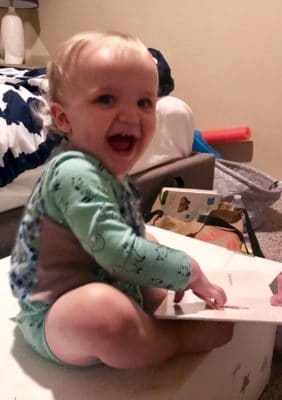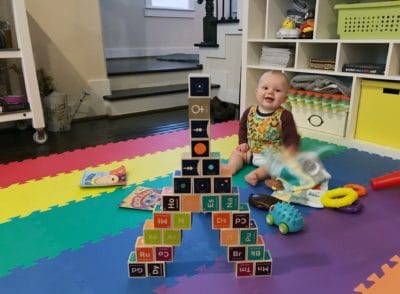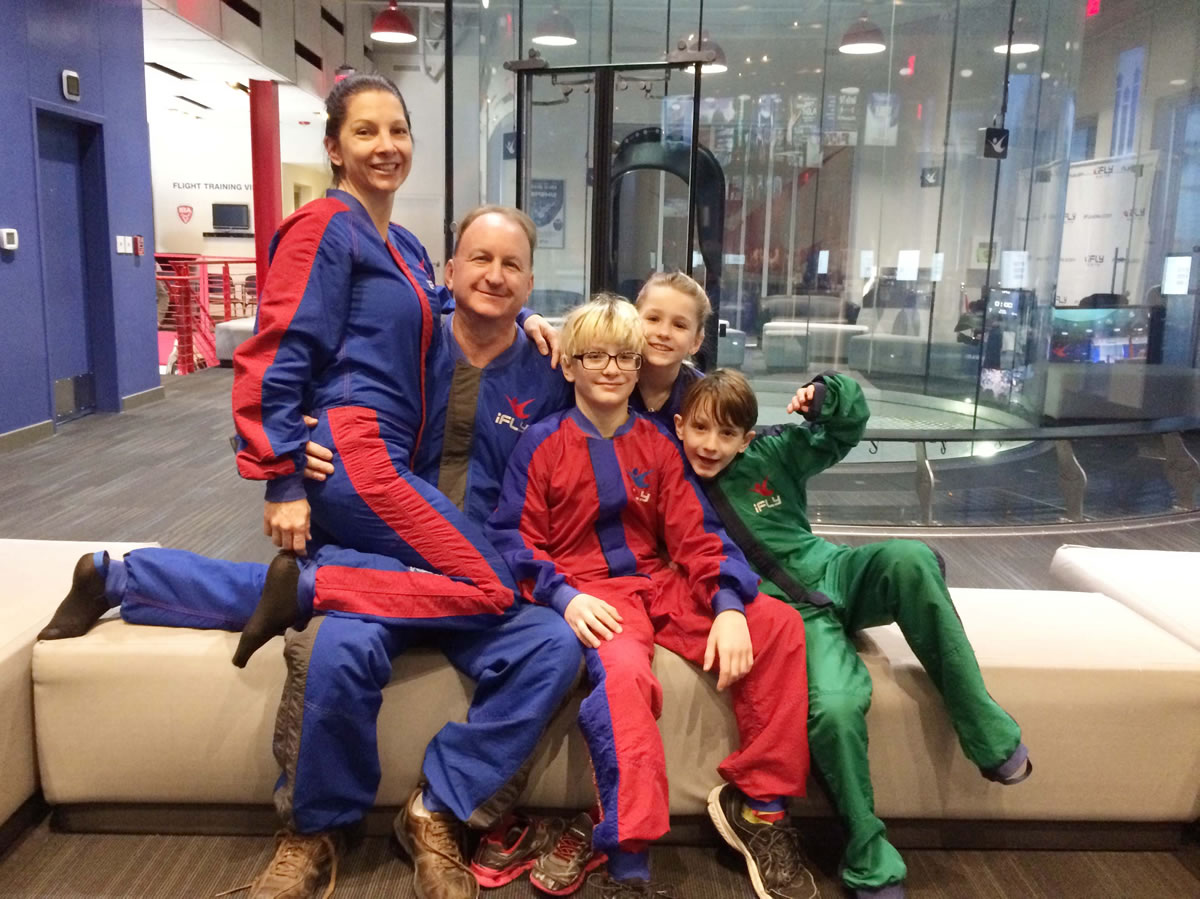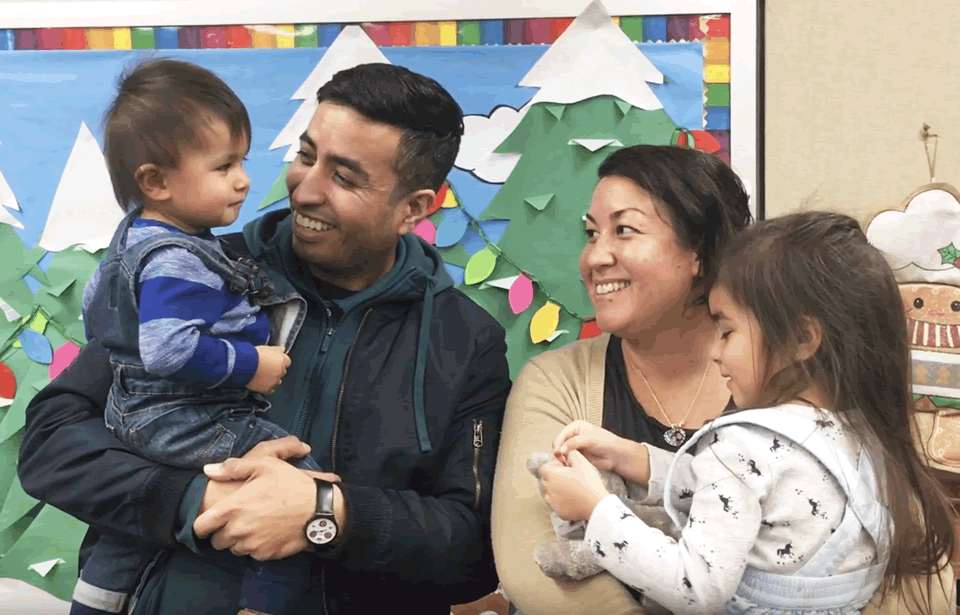Like many parents, Kathryn Royse, an epidemiologist at Texas Children’s Hospital in Houston, spent her Sundays preparing for the week ahead.

Kathryn Royse used to put her son Jude in front of the television while she finished chores. Now, she tries to involve him in the process as much as possible.
Laundry, meal prep, cleaning — she tried to rush through it all as quickly as possible so that she could do something fun with her infant son, Jude, at the end of the day. In the meantime, she’d put him in front of the TV to keep him occupied while she worked.
It wasn’t until she enrolled in upWORDS, a LENA Start parent-group class offered through the hospital, that she began to realize how those busy times were impacting Jude.
After using LENA technology to measure the amount of adult words, conversational turns, and TV/electronic noise Jude experienced, she was surprised to receive her first feedback report and see low numbers in words and turns.
“I was fairly confident before the class started that I was talking to him a lot — so the first recordings were a big surprise,” she said.
She’s not alone — studies show that most adults tend to overestimate how much they talk with children.
Her surprise quickly turned to determination to increase the amount of time she spent interacting with Jude. She pinned the 14 Talking Tips to her fridge and started looking at the reports to identify which times of day she could increase conversation.
“I learned how to slow things down and incorporate him into whatever I was doing,” she explained.
She set up a little blanket on the floor of the kitchen so she could talk with Jude while she worked. Sometimes she sat down there with him, face-to-face, so she could see and interact with the world from his perspective.
“I’m a single mom, and honestly, sometimes I felt like I had to work twice as hard because it was just me on recording days,” she said.
Over the course of the three-month program, she used the LENA data to identify areas of growth and make improvements.
“I loved having data to see how I was doing over time,” she said. “The class is a good length — it gives you time to learn the material and practice. It was very rewarding to see the change over time.”
Her reports showed that at the beginning of the program she spoke around 4-5,000 words per day. By the end of the program, she’d increased to speaking nearly 20,000 words to Jude each day.
“I worked really hard with him,” Royse said. “You want to give your child the best possible chance in life — I’m just so glad we found the class.”
She ended up receiving an awards from upWORDS for creating the biggest change in conversational turns from the first class to the last out of any of the families attending.

Samantha’s son Seth is more verbally interactive after LENA Start and mirrors adult excitement.
“I was super proud when we got the award for highest increase,” she said. “I feel like Jude and I have a better relationship because I’ve learned how to slow down. I try to make everything fun and interactive during the day now.”
Kathryn’s best friend, Samantha Stover, also attended the same class with her son Seth. She too realized that she wasn’t talking to her son as much as she thought she was.
“The class was really eye-opening,” Stover said. “I learned so much about child development that I didn’t know.”
Her favorite metric on the feedback reports was Reading Minutes. LENA Start encourages parents to read for 20 minutes each day, and the added accountability of reporting how much she read helped Samantha to establish a regular daily habit of reading with Seth.
“Keeping track has helped us to set up a good habit. I’ve learned more about how he prefers reading now, too. He really likes it when you get into it and use funny voices,” she said with a smile.
Attending the classes helped her to build up a home library too, as parents receive a book each week. She keeps some of those books in the car and in Seth’s travel bag, an idea that she’d never thought of until she heard it in class.
“I feel like Jude and I have a better relationship because I’ve learned how to slow down. I try to make everything fun and interactive during the day now."
-Kathryn Royse
“He’s been getting our attention more and becoming more verbally interactive now. Rather than just making random noises, he imitates our sounds if we’re talking. If we get excited, he’ll mirror our reactions,” she said.
Both moms would recommend the program to others, saying that it changed their outlook on parenting.
“There’s so much attention to detail in this program — they really think about every part of how to make a parent successful. There’s something for every type of family and every type of baby,” Royse said.





